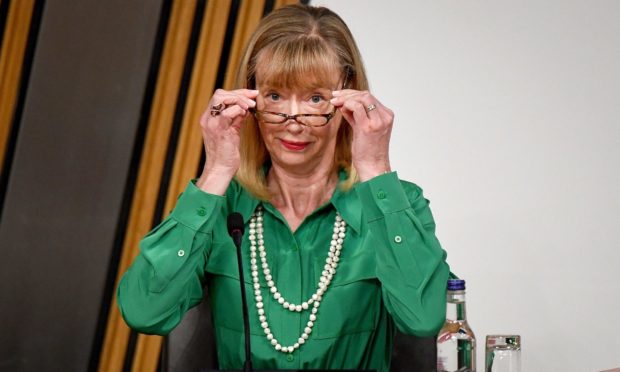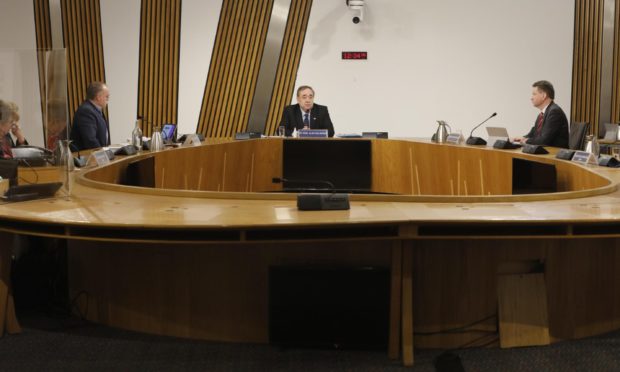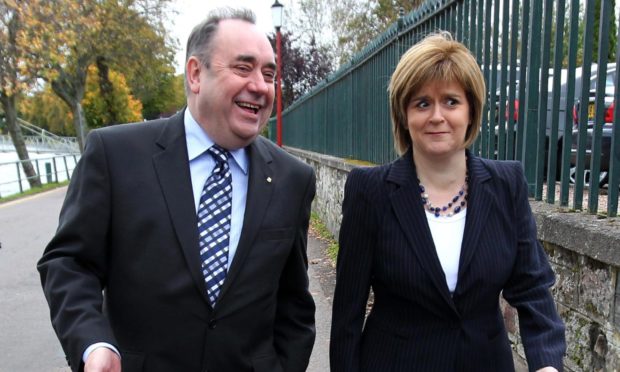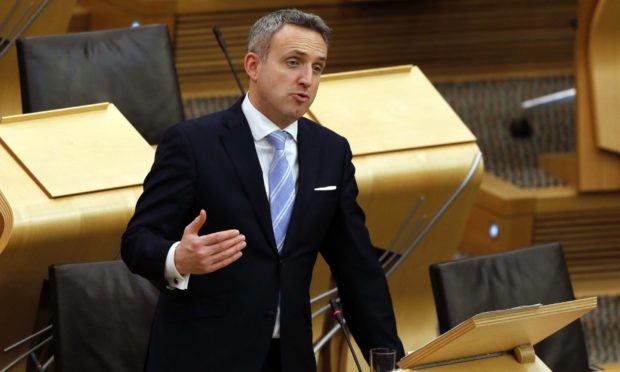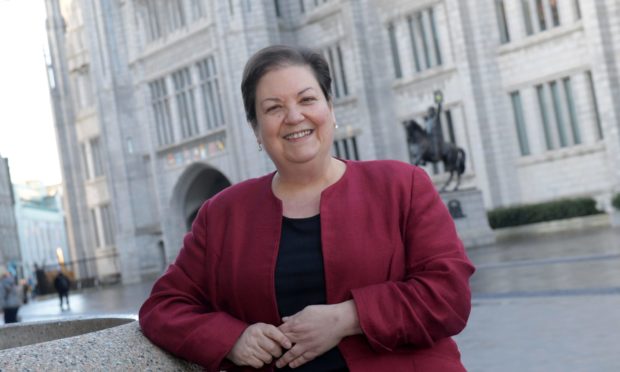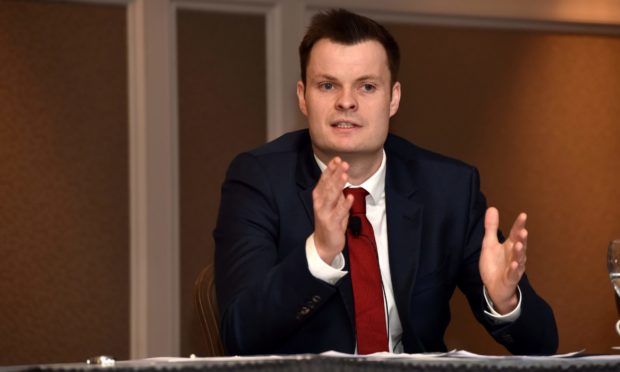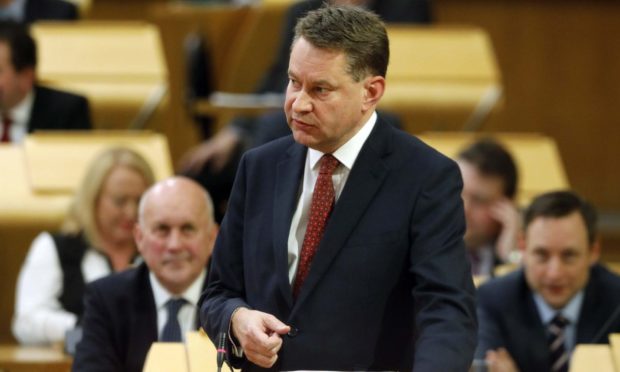Alex Salmond has accused Nicola Sturgeon of breaking the ministerial code as he demanded the resignations of a series of top government and SNP officials.
He suggested the first minister, the lord advocate and the government’s permanent secretary had “failed” Scotland, and were undermining the case for independence.
During an explosive six-hour session at Holyrood, Mr Salmond alleged that a group of senior figures plotted to have him jailed because they were scared that his victory in a civil case would have “cataclysmic” consequences for Ms Sturgeon her government.
He directly contradicted Ms Sturgeon’s version of events over meetings she held in 2018, including when she knew about allegations against Mr Salmond and whether the name of one of the complainers had been given to his aide.
However, Mr Salmond stopped short of saying that the first minister should resign if she is found to have breached the ministerial code.
Salmond’s ‘nightmare’
The former SNP leader finally testified on Friday before a committee of MSPs investigating the way the Scottish Government handled allegations against him.
He spoke of the “nightmare” he had experienced and said he could not “move on” until the “decision-making which is undermining the system of government in Scotland is addressed” but Mr Salmond would not apologise for his own behaviour when asked if he would say sorry to the women involved.
And in a surprise move at the end of the session, the former first minister suggested the committee may be able to secure some of the evidence it has been unable to obtain by serving an order on his solicitors.
The hearing was held after weeks of wrangling over whether his evidence could be published, and a huge row over a decision to redact parts of it earlier this week.
Asked who should resign over the government’s handling of the allegations against him, Mr Salmond said the “people responsible for the disaster of the judicial review”, including the Scottish Government’s Permanent Secretary Leslie Evans, while he said Lord Advocate James Wolffe should be “considering his position”, as well as senior figures in the SNP he had named in his written evidence, including chief executive Peter Murrell, husband of Ms Sturgeon.
Scotland’s ‘leadership has failed’
Meanwhile, Mr Salmond suggested there may have been “obstruction of justice” over the government’s failure to disclose evidence to the courts, and he called for a police investigation into the leaking of allegations against him.
The Holyrood committee was set up after Mr Salmond received a £512,000 pay-out following the Court of Session civil ruling that the Scottish Government’s handling of the complaints was “unlawful” and “tainted by apparent bias”.
Separately, the former first minister was cleared of 13 charges, including sexual assault, indecent assault and attempted rape, following a trial last year.
In his opening statement to the committee, Mr Salmond said: “Some people say that the failures of these institutions – the blurring of the boundaries between party, government and prosecution service – means that Scotland is in danger of becoming a failed state.
“I disagree. The Scottish civil service hasn’t failed, its leadership has. The Crown Office hasn’t failed, its leadership has failed. Scotland hasn’t failed, its leadership has failed.”
For two years and six months this has been a nightmare.”
Alex Salmond
Mr Salmond, who said he was suffering from a chest infection during his evidence, even appeared to suggest that these issues had weakened the case for Scottish independence.
He said: “Few would now dispute that our country is a better place for achieving our parliament.
“However, the move to independence, which I have sought all my political life and continue to seek, must be accompanied by institutions whose leadership is strong and robust, and capable of protecting each and every citizen from arbitrary authority.”
Ms Sturgeon, who will give evidence next week, has accused her former mentor of peddling “dangerous” conspiracy theories, and challenged him to produce evidence to back up his claims.
Describing his experience since the allegations emerged, Mr Salmond said: “For two years and six months this has been a nightmare.
“I have every desire to move on, to turn the page, to resist talking yet again about the series of events which are amongst the most wounding that any person can face.
“But the reason I’m here today is because we can’t turn that page nor move on until the decision-making which is undermining the system of government in Scotland is addressed.”
Evidence published then redacted
Mr Salmond’s appearance had been rescheduled several times over the last few weeks amid a storm of controversy over his evidence, and whether it could be published.
The document was eventually made public on Monday night but on Tuesday it was taken down and republished with redactions, after the Crown Office contacted the Scottish Parliamentary Corporate Body.
Mr Salmond, who delayed his committee appearance from Wednesday to Friday, claimed the inquiry had been “systematically deprived of the evidence it has legitimately sought”, later adding there was “deliberate suppression of information inconvenient to the government”.
Questioned by Liberal Democrat MSP Alex Cole-Hamilton, Mr Salmond said he did not believe Ms Sturgeon had been involved in a “cover-up” of complaints against him.
He said: “I’ve seen it pursued on the committee that somehow Nicola Sturgeon was covering up – that’s not the case, my charges against Nicola Sturgeon don’t include that.”
Mr Cole-Hamilton added: “I want to ask, laying aside the charges of which you have been acquitted, and the allegations that you deny, of the behaviours that you have admitted to, some of which are appalling, are you sorry?”
Mr Salmond replied: “In my statement I pointed out the government’s illegality has had huge consequences for a number of people, and specifically mentioned the complainants in my opening statement.
“Over the last three years, there have been two court cases, two judges and a jury, and I’m resting on the proceedings of these cases.”
Labour’s Jackie Baillie asked the former first minister if the name of one of the complainers had been shared at a meeting his former chief of staff, Geoff Aberdein, had attended.
Mr Salmond said it had, adding: “My former chief of staff told me that.”
This contradicted what Ms Sturgeon has said concerning that allegation.
Mr Salmond also said that that the meeting of March 29 2018, between Ms Sturgeon and Mr Aberdein was “not impromptu, was not accidental”, and the subsequent meeting on April 2 between Ms Sturgeon and Mr Salmond was “not popping in” to the first minister’s home, but had been arranged at the discussion a few days earlier.
These meetings are important because Ms Sturgeon initially told parliament she had not learned of the allegations against Mr Salmond until she was informed by him on April 2, later claiming to have “forgotten” about the previous meeting with Mr Aberdein.
Meetings involving the first minister should be recorded, under the ministerial code.
Ms Sturgeon has said she agreed to meet Mr Salmond on April 2 because she thought he was going to resign from the SNP, but Mr Salmond said his resignation at that stage would have been regarded as “astounding news” and that would have been the “opposite” of what he was trying to achieve.
The former first minister later added: “I would have thought either explanation breaches the ministerial code, because either the meeting of March 29 wasn’t forgotten about and parliament was deliberately misled, or alternatively it was forgotten about, and parliament wasn’t informed when she was reminded of it.
“In my submission on the ministerial code, it says these are clear breaches of the ministerial code.
“What happens as a result is not up to me, it’s for this committee, Mr James Hamilton, it’s for others. All I can do is come here and tell you the truth.”
Judicial review
Mr Salmond has accused several people in the Scottish Government and SNP of setting out to ruin his reputation, and Conservative committee member Murdo Fraser asked him why they would do that.
“I believe the motivation for furnishing complaints to the police was initially to defeat the judicial review by having it postponed,” he said.
“I think it became to be believed among some people that the loss of the judicial review, the lost of the court case, would be cataclysmic, not just for Leslie Evans, not just for special advisers in the Scottish Government, but would be cataclysmic for Nicola Sturgeon herself.
“And I think that unfortunately people came to the belief police process would somehow assist in, firstly, not losing the judicial review, and thereafter, making sure that the loss in the judicial review would be swept away in the inevitable publicity of the criminal trial.
“And if I had been convicted of any offence in the criminal trial that would have been the case.”
